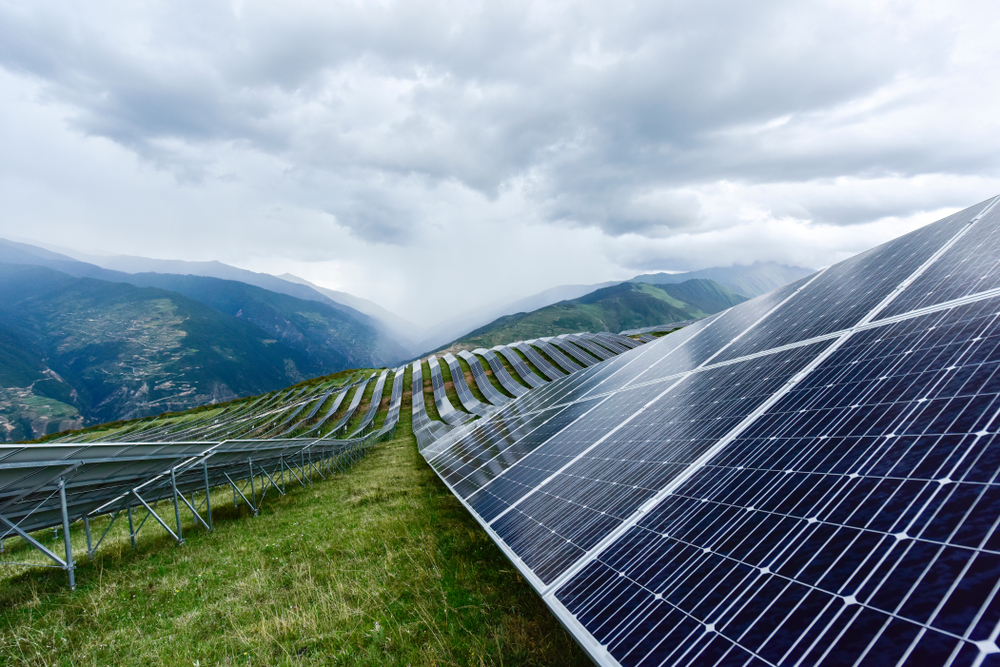Solar energy has become a crucial solution for energy needs worldwide, especially in countries like Pakistan where conventional energy sources are scarce, expensive, and unreliable. Understanding the importance of solar energy in Pakistan helps reveal how it can drive sustainable development, support economic growth, and improve the quality of life for millions. This article explores why solar energy is essential for Pakistan, its benefits, and how it contributes to a cleaner, greener future.
Why Solar Energy is Essential for Pakistan
Growing Energy Demand in Pakistan
Pakistan faces a constant increase in energy demand due to population growth and economic development. Traditional sources, such as oil, gas, and coal, are insufficient to meet this demand. Solar energy offers a renewable, reliable solution to fill this energy gap. As the demand for energy increases, solar power becomes a sustainable, affordable, and eco-friendly alternative that can be harnessed across the country.
Pakistan’s High Solar Potential
One of the main reasons solar energy is ideal for Pakistan is its high solar irradiance levels. Most areas of Pakistan receive around 300 sunny days annually, providing an excellent environment for solar power generation. Regions like Sindh, Punjab, and Balochistan have optimal conditions for large-scale solar projects. This natural resource can be effectively used to meet energy needs, reduce reliance on imports, and make Pakistan self-sufficient in energy production.
Advantages of Solar Energy in Pakistan
Reduction in Energy Costs
The importance of solar energy in Pakistan lies in its ability to reduce energy costs significantly. As solar installations grow, both businesses and households can lower their electricity bills by generating their own power. Once the initial setup cost is covered, solar energy is virtually free. This reduction in expenses can be particularly beneficial for Pakistan’s rural and low-income communities, where access to affordable electricity can drive social and economic improvement.
Environmental Benefits of Solar Energy
Pakistan faces severe environmental challenges, including air pollution, deforestation, and water scarcity. Solar energy offers a cleaner alternative to fossil fuels, producing no greenhouse gas emissions. By adopting solar energy on a larger scale, Pakistan can reduce its carbon footprint, contributing to global climate change efforts. The shift to renewable energy sources is essential for a cleaner, greener Pakistan.
Reducing Dependency on Imported Fuel
Currently, Pakistan relies heavily on imported fossil fuels, which strains the economy and increases its vulnerability to global price fluctuations. Solar energy can help reduce this dependency. By investing in solar infrastructure, Pakistan can cut down on fuel imports, save foreign exchange, and stabilize its energy sector. This move will also help shield Pakistan from the volatility of international oil and gas markets.
Solar Energy Applications in Pakistan
Rural Electrification with Solar Power
One of the most critical applications of solar energy in Pakistan is rural electrification. Many remote areas lack access to the national grid, leaving millions without electricity. Solar energy can provide a decentralized power source, delivering electricity to areas that would otherwise be dark. Solar-powered lighting, pumps, and small appliances can transform the lives of rural communities, enabling educational opportunities, economic growth, and improved healthcare.
Solar-Powered Water Pumps for Agriculture
Agriculture is the backbone of Pakistan’s economy, yet farmers often face power shortages that affect irrigation. Solar-powered water pumps offer a sustainable solution for agriculture, helping farmers irrigate their land without relying on unreliable and costly electricity sources. This technology ensures a steady water supply, increases crop yields, and boosts the agricultural sector, which employs a significant portion of Pakistan’s workforce.
Urban Applications of Solar Energy
In urban areas, solar energy is increasingly used for residential, commercial, and industrial purposes. Rooftop solar panels are gaining popularity, enabling households and businesses to reduce electricity costs and become more energy-independent. Government initiatives and private sector partnerships are also encouraging the installation of solar panels on public buildings, schools, hospitals, and shopping centers, showcasing the importance of solar energy in Pakistan’s urban landscape.
Government Initiatives and Solar Policies
Solar Power Projects and Incentives
The Pakistani government has recognized the potential of solar energy and introduced several policies to promote its adoption. Projects such as the Quaid-e-Azam Solar Park in Bahawalpur aim to increase the country’s solar power capacity. The government also offers tax incentives, subsidies, and financing options for solar installations to make them more affordable for businesses and individuals. These initiatives reflect the government’s commitment to reducing dependence on fossil fuels and promoting a cleaner energy landscape.
Net Metering and Energy Exchange
Net metering is a significant policy in Pakistan’s solar energy sector that allows users to sell excess electricity back to the grid. This policy enables solar panel owners to not only save on electricity bills but also generate income from their surplus power. Net metering promotes solar adoption among households and businesses, making solar installations more financially viable and appealing.
Challenges Facing Solar Energy in Pakistan
High Initial Costs
While solar energy offers long-term savings, the initial cost of solar panel installation can be a barrier for many Pakistanis. Although the prices of solar panels have decreased globally, the initial investment remains relatively high. Government subsidies and financing options can help alleviate this issue, but further efforts are needed to make solar energy accessible to all income levels.
Lack of Awareness and Technical Expertise
A significant challenge in promoting the importance of solar energy in Pakistan is the lack of awareness and technical expertise. Many people are unfamiliar with how solar technology works or how it can benefit them. Additionally, limited availability of trained technicians can make maintenance and installation challenging, especially in remote areas. Increased education and training programs can help bridge this gap, ensuring that more Pakistanis understand and can access solar energy benefits.
Intermittent Energy Production
Solar energy is dependent on sunlight, which varies by time of day and season. This intermittent nature can pose challenges, particularly during cloudy days or nighttime. However, technological advancements in battery storage and hybrid energy systems can mitigate this issue, making solar energy a more reliable source for Pakistan’s diverse energy needs.
The Role of Solar Energy in Future of Pakistan
Solar Energy and Economic Growth
By investing in solar infrastructure, Pakistan can create new jobs, particularly in manufacturing, installation, and maintenance. The expansion of the solar industry can stimulate economic growth and reduce unemployment, while also attracting foreign investment in renewable energy.
Enhancing Energy Security and Independence
Solar energy can increase Pakistan’s energy security by reducing dependence on imported fuel and mitigating the risks associated with energy price fluctuations. A diversified energy mix with a strong renewable component will make Pakistan less vulnerable to global economic disruptions and ensure a more stable energy supply.
Achieving Sustainable Development Goals (SDGs)
By adopting solar energy, Pakistan can progress toward meeting its Sustainable Development Goals, particularly those related to clean energy, climate action, and poverty reduction. Access to affordable and sustainable energy empowers communities, supports economic development, and enhances overall well-being.
DSG Energy is dedicated to transforming the energy landscape of Pakistan by promoting the importance of solar energy in Pakistan through advanced, grid-tied solar system installations. By encouraging a shift to renewable energy, DSG Energy helps reduce dependency on costly imports, stabilizes energy costs, and contributes to a cleaner environment. With a focus on efficient energy solutions, DSG Energy empowers Pakistani households and businesses to embrace solar power, enhancing both energy security and environmental sustainability for a brighter future.
Key Takeaways on Solar Energy’s Potential in Pakistan
Solar energy holds immense potential for addressing Pakistan’s energy challenges. By harnessing its abundant sunlight, Pakistan can reduce energy costs, improve environmental health, and enhance energy security. Despite some challenges, government policies, net metering, and technological advancements are paving the way for a brighter, more sustainable future.
Embracing solar energy can transform Pakistan’s energy landscape, contributing to a cleaner, self-reliant nation poised for growth and sustainability.




